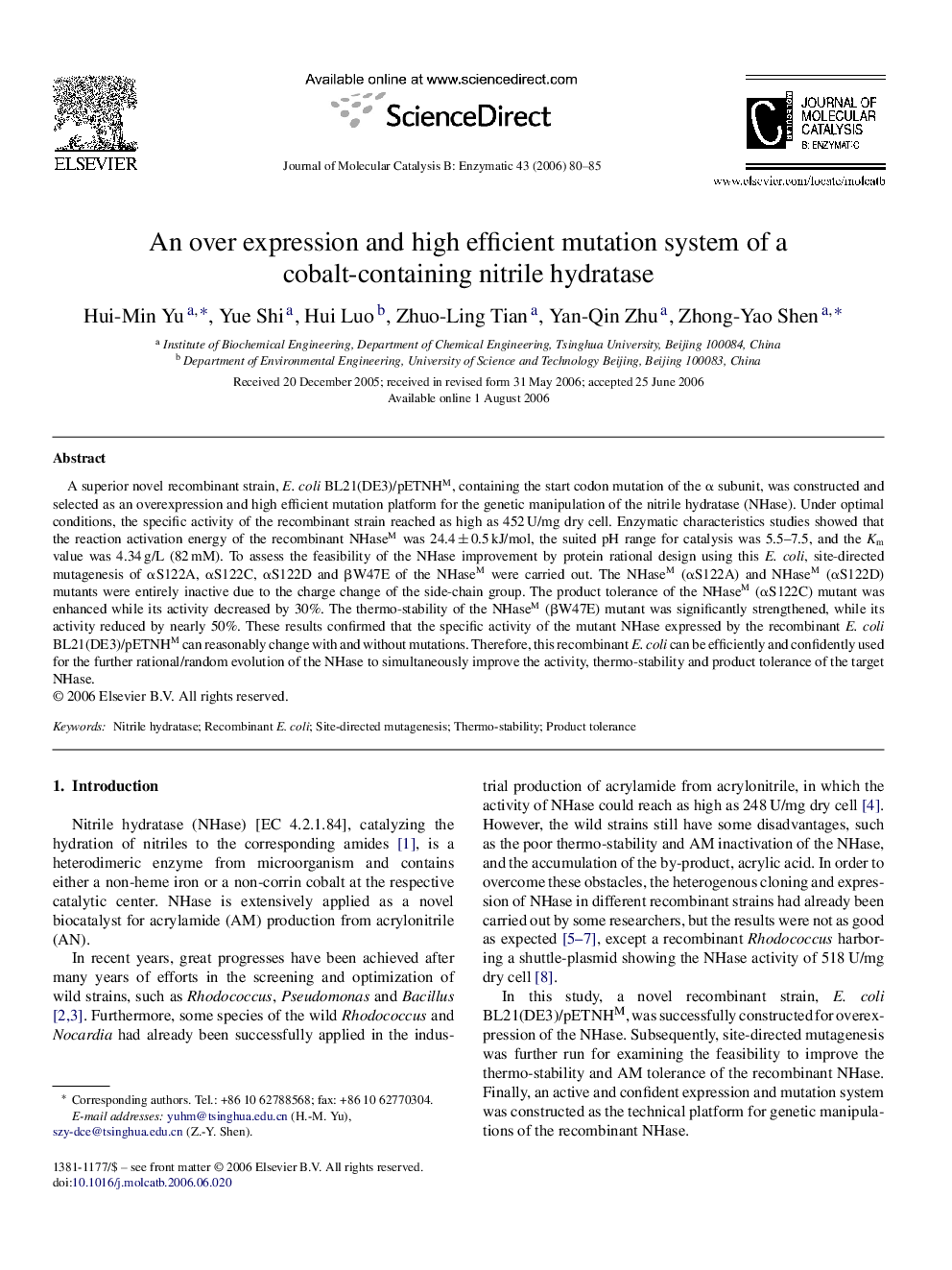| Article ID | Journal | Published Year | Pages | File Type |
|---|---|---|---|---|
| 71260 | Journal of Molecular Catalysis B: Enzymatic | 2006 | 6 Pages |
A superior novel recombinant strain, E. coli BL21(DE3)/pETNHM, containing the start codon mutation of the α subunit, was constructed and selected as an overexpression and high efficient mutation platform for the genetic manipulation of the nitrile hydratase (NHase). Under optimal conditions, the specific activity of the recombinant strain reached as high as 452 U/mg dry cell. Enzymatic characteristics studies showed that the reaction activation energy of the recombinant NHaseM was 24.4 ± 0.5 kJ/mol, the suited pH range for catalysis was 5.5–7.5, and the Km value was 4.34 g/L (82 mM). To assess the feasibility of the NHase improvement by protein rational design using this E. coli, site-directed mutagenesis of αS122A, αS122C, αS122D and βW47E of the NHaseM were carried out. The NHaseM (αS122A) and NHaseM (αS122D) mutants were entirely inactive due to the charge change of the side-chain group. The product tolerance of the NHaseM (αS122C) mutant was enhanced while its activity decreased by 30%. The thermo-stability of the NHaseM (βW47E) mutant was significantly strengthened, while its activity reduced by nearly 50%. These results confirmed that the specific activity of the mutant NHase expressed by the recombinant E. coli BL21(DE3)/pETNHM can reasonably change with and without mutations. Therefore, this recombinant E. coli can be efficiently and confidently used for the further rational/random evolution of the NHase to simultaneously improve the activity, thermo-stability and product tolerance of the target NHase.
